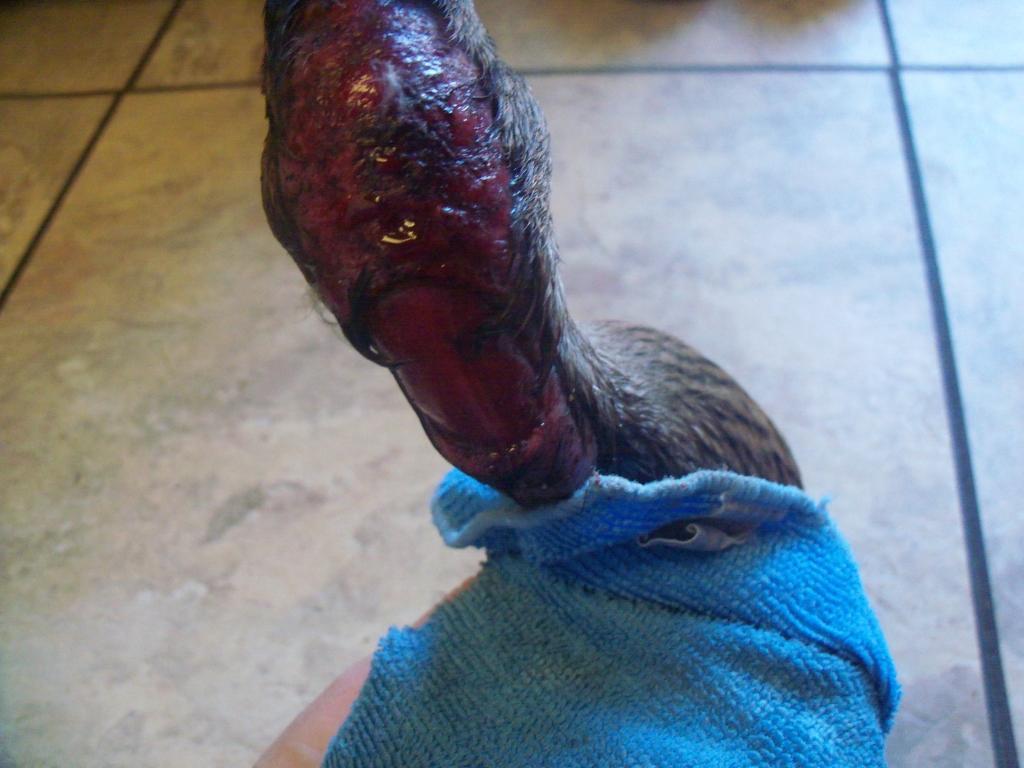I was talking to some of my friends about this on another thread.. However, I want to go ahead and post this here to see what other advice I get.
Beaker was attacked today by my adult duck. Beaker is probably a couple months old maybe not quite 3.. almost fully feathered..
So here is the wound: And I would like some advice on how to treat. Also if I can give some baby aspirin for pain? She is clearly hurting.

I bandaged it with salve and she is sleeping in my kitchen in a dark warm place. I have noticed she is shivering a little. Which I find odd.
Thank you in advance.
Beaker was attacked today by my adult duck. Beaker is probably a couple months old maybe not quite 3.. almost fully feathered..
So here is the wound: And I would like some advice on how to treat. Also if I can give some baby aspirin for pain? She is clearly hurting.

I bandaged it with salve and she is sleeping in my kitchen in a dark warm place. I have noticed she is shivering a little. Which I find odd.
Thank you in advance.

